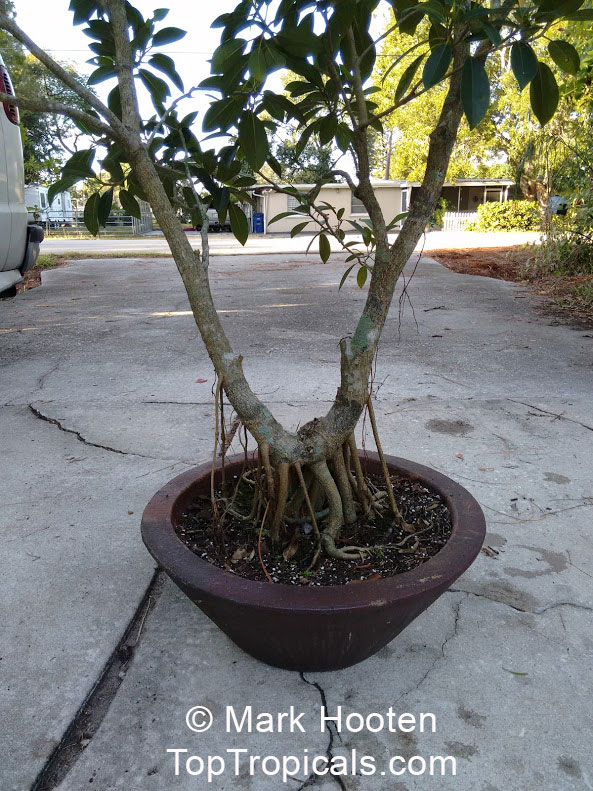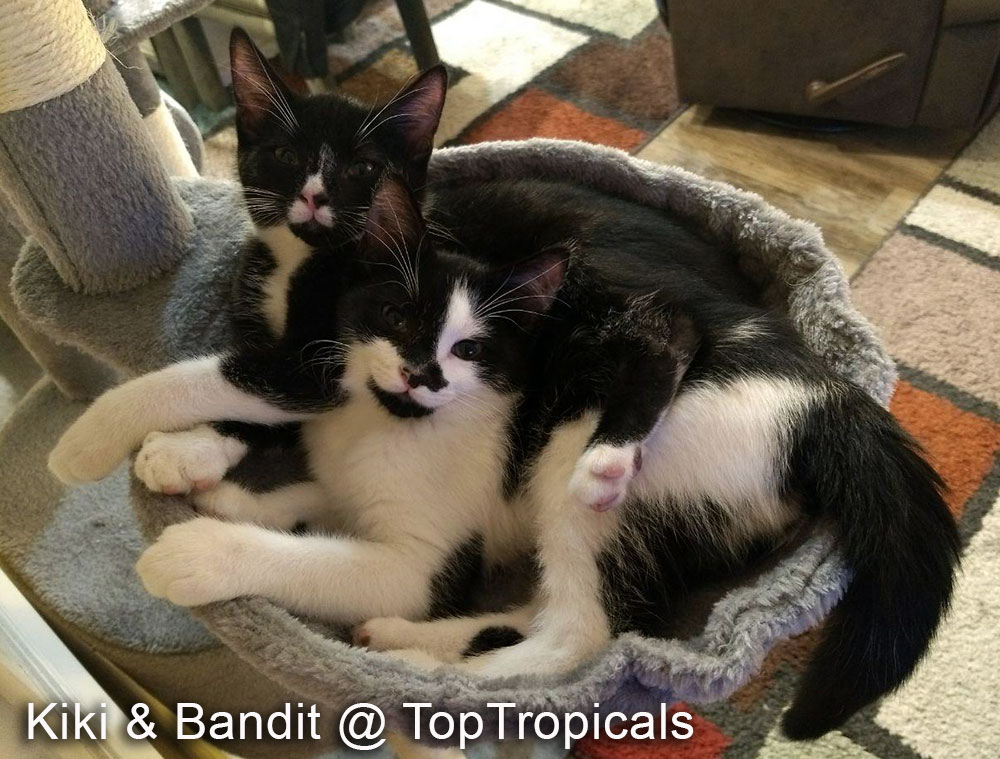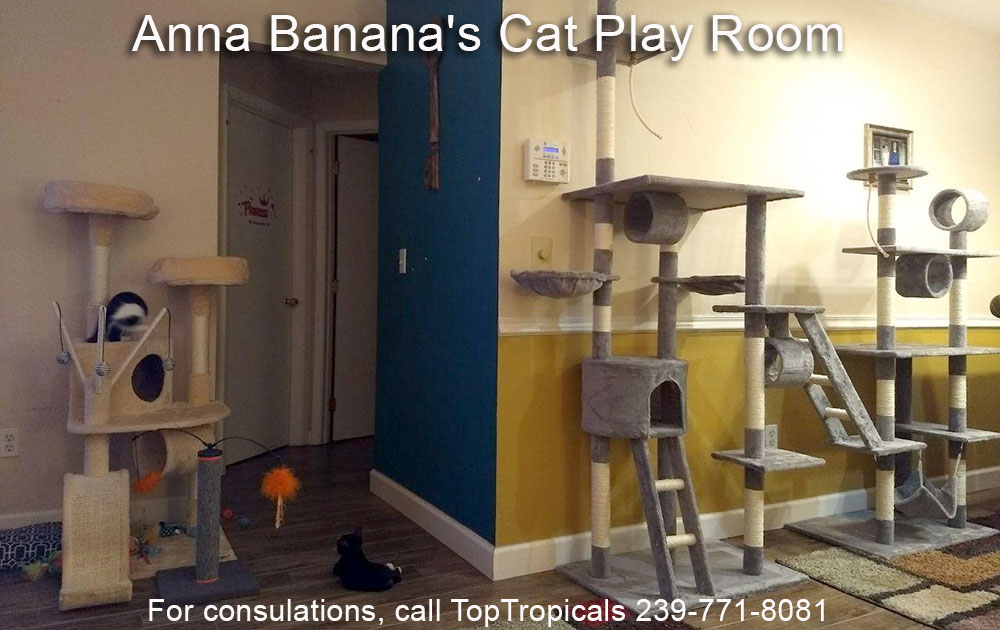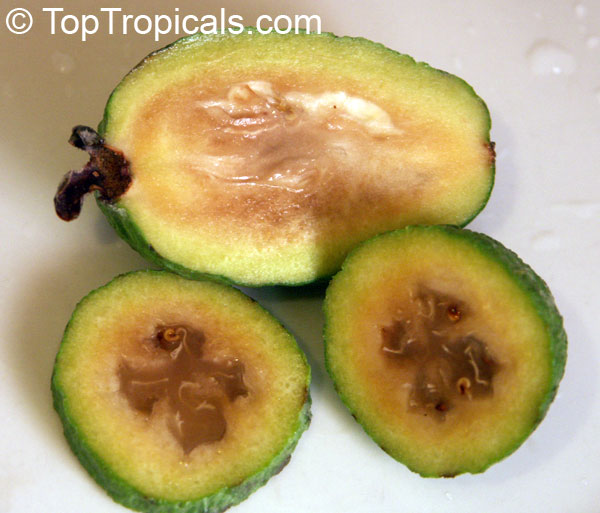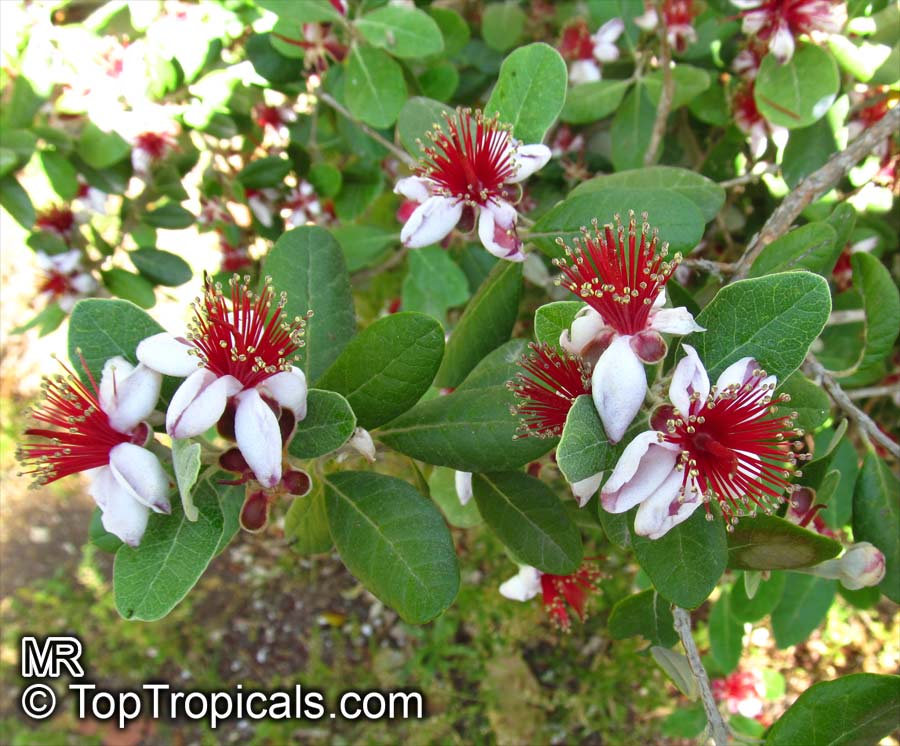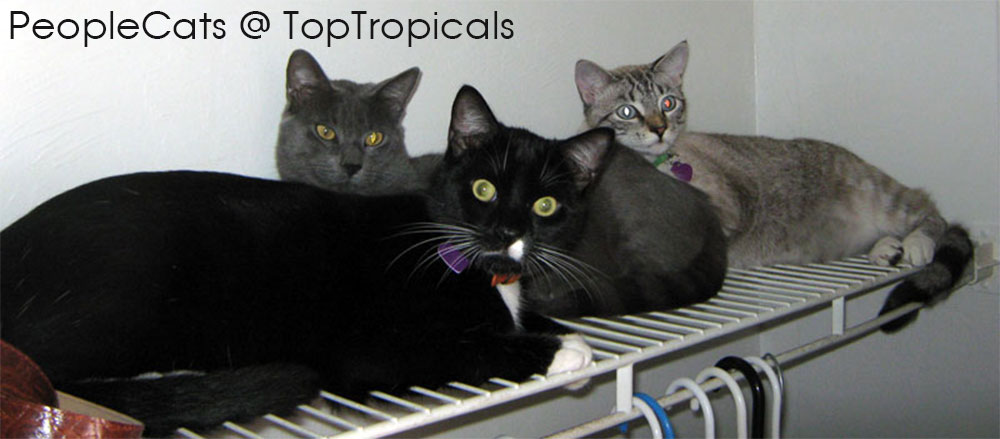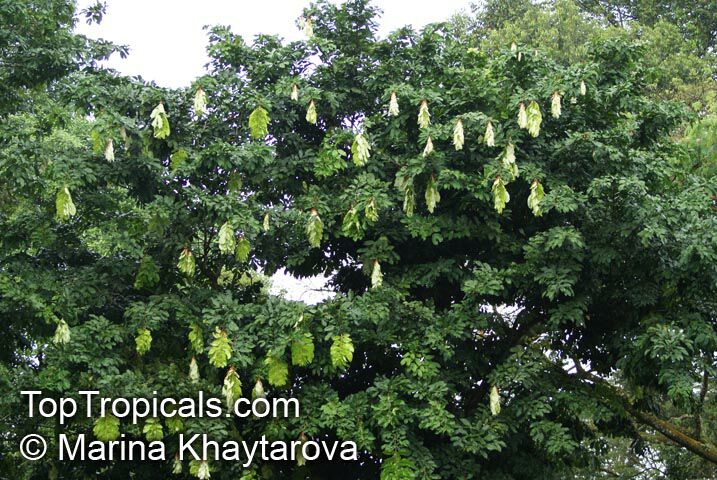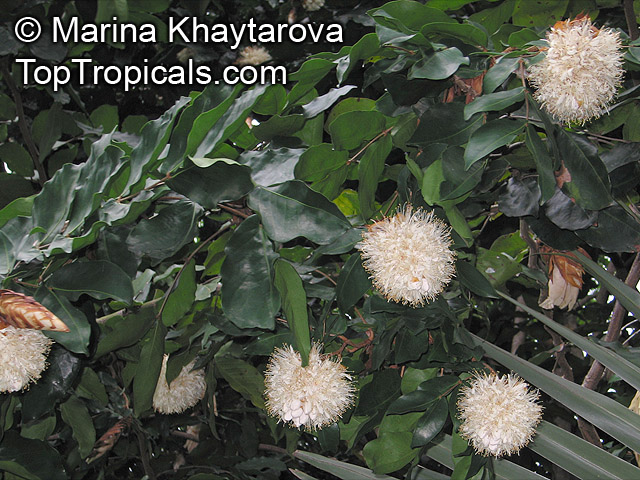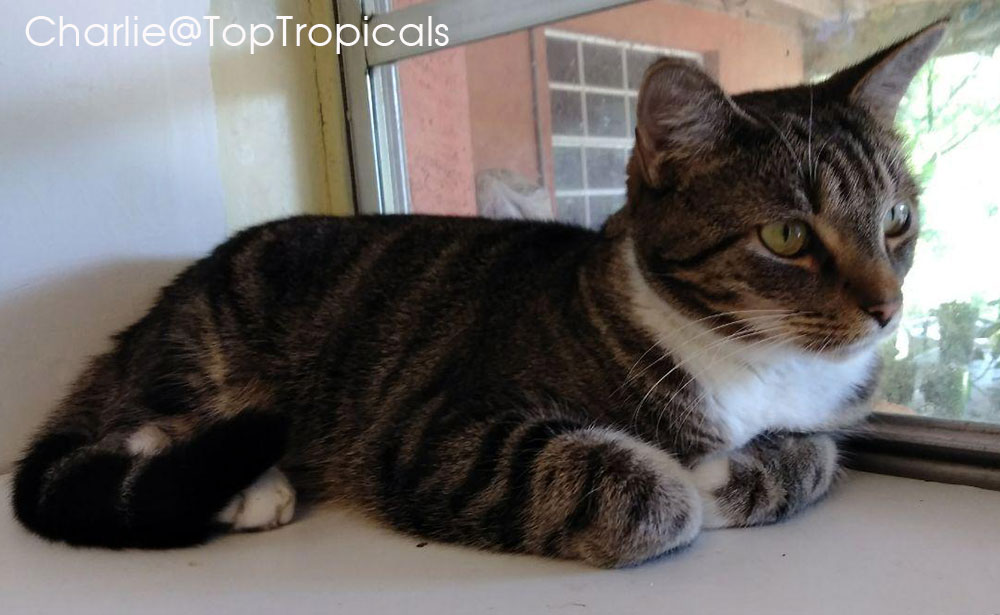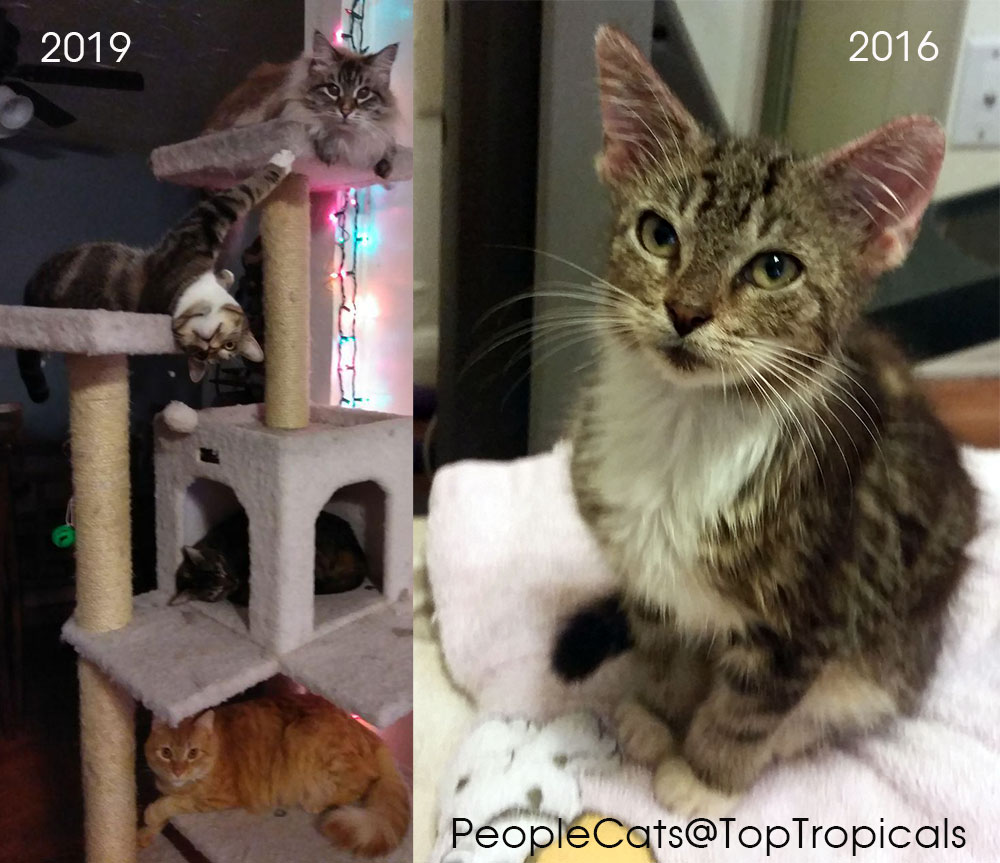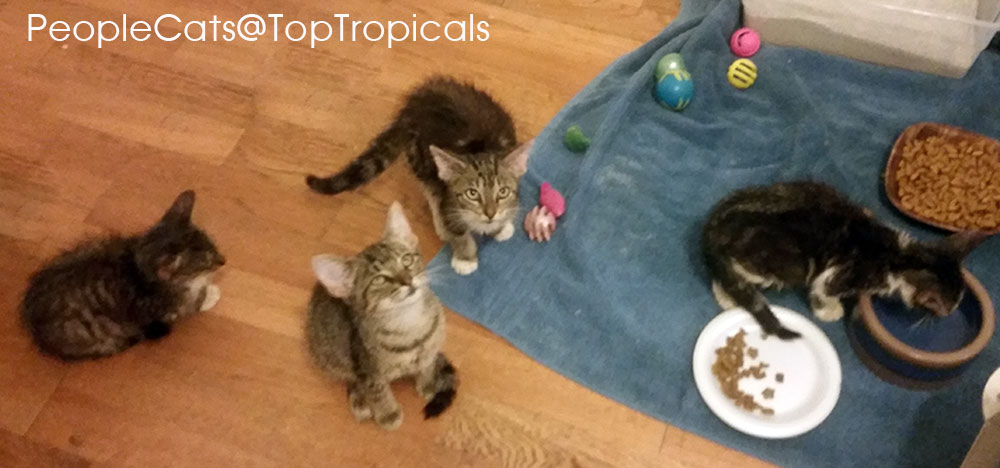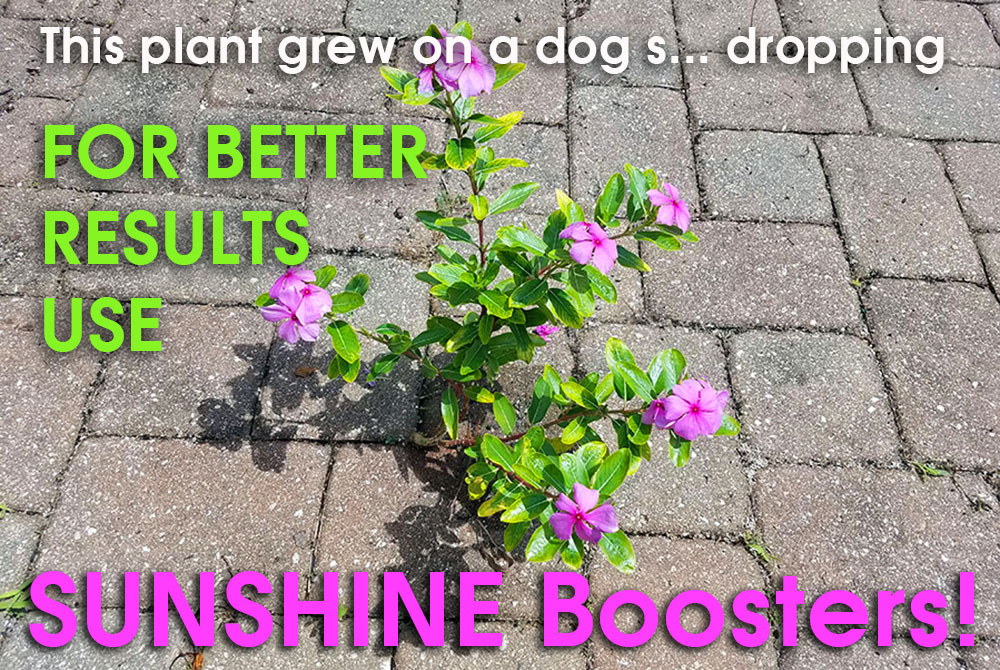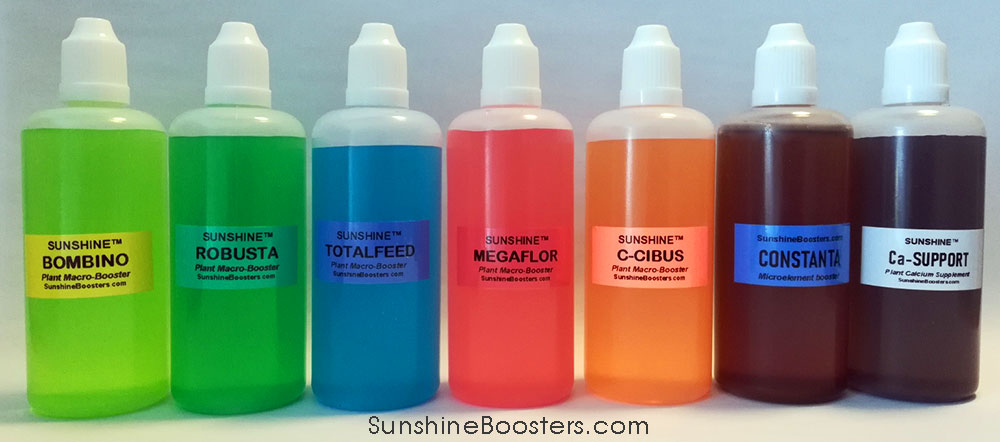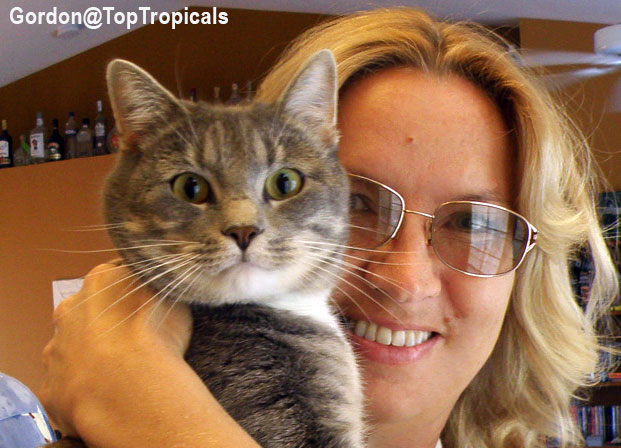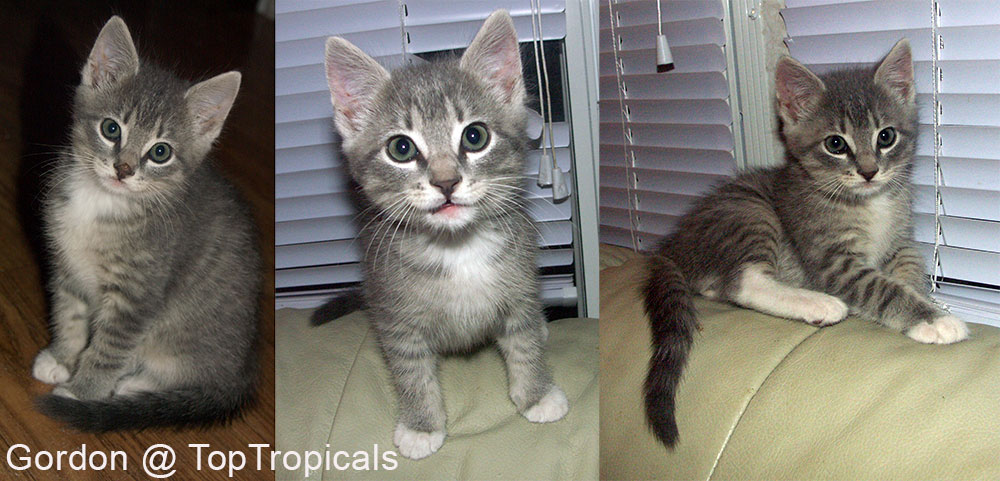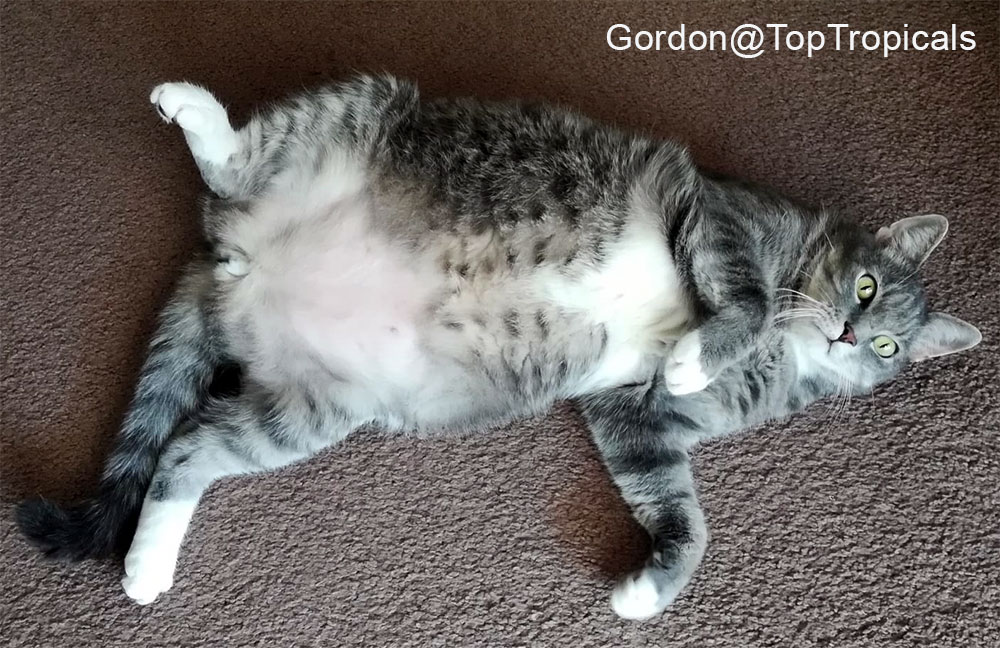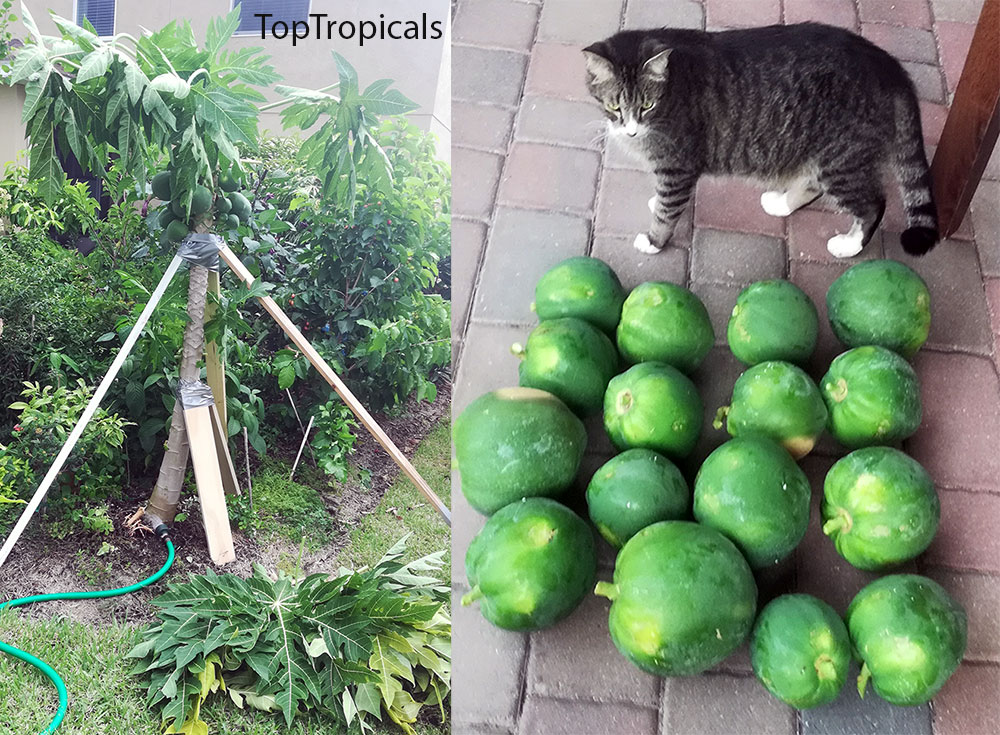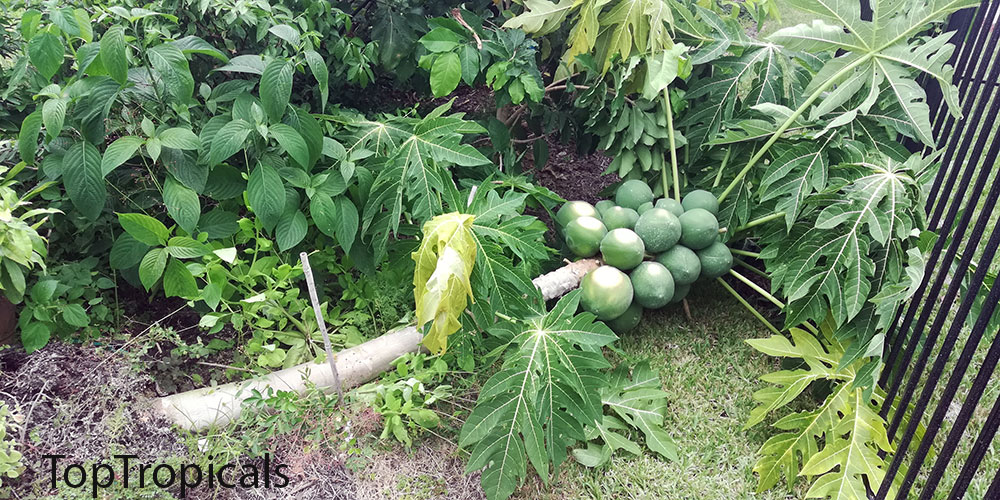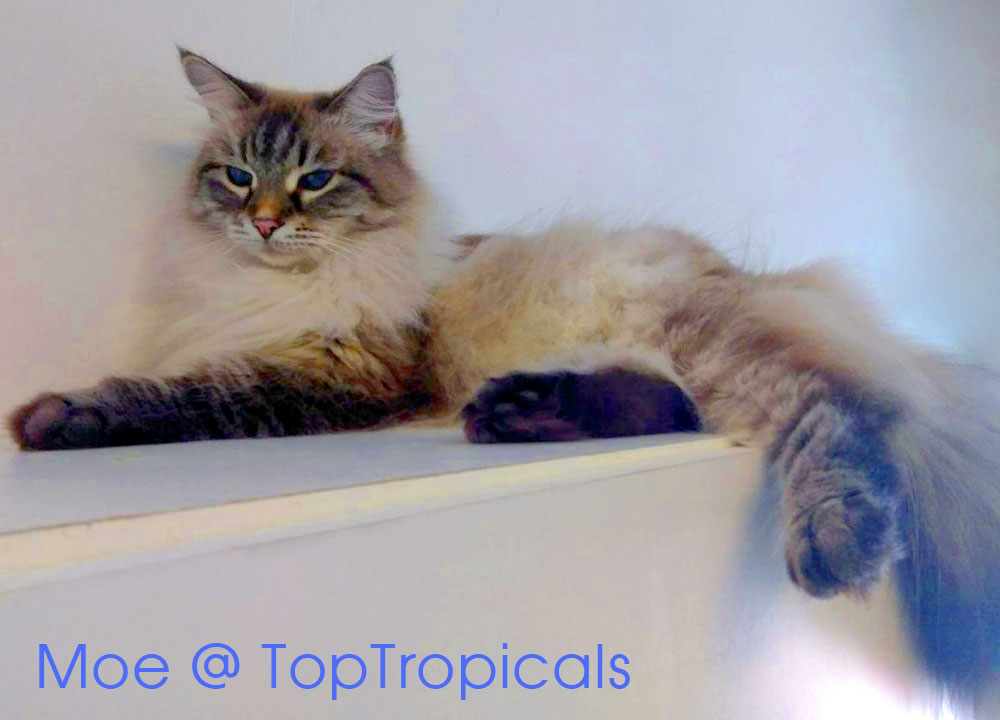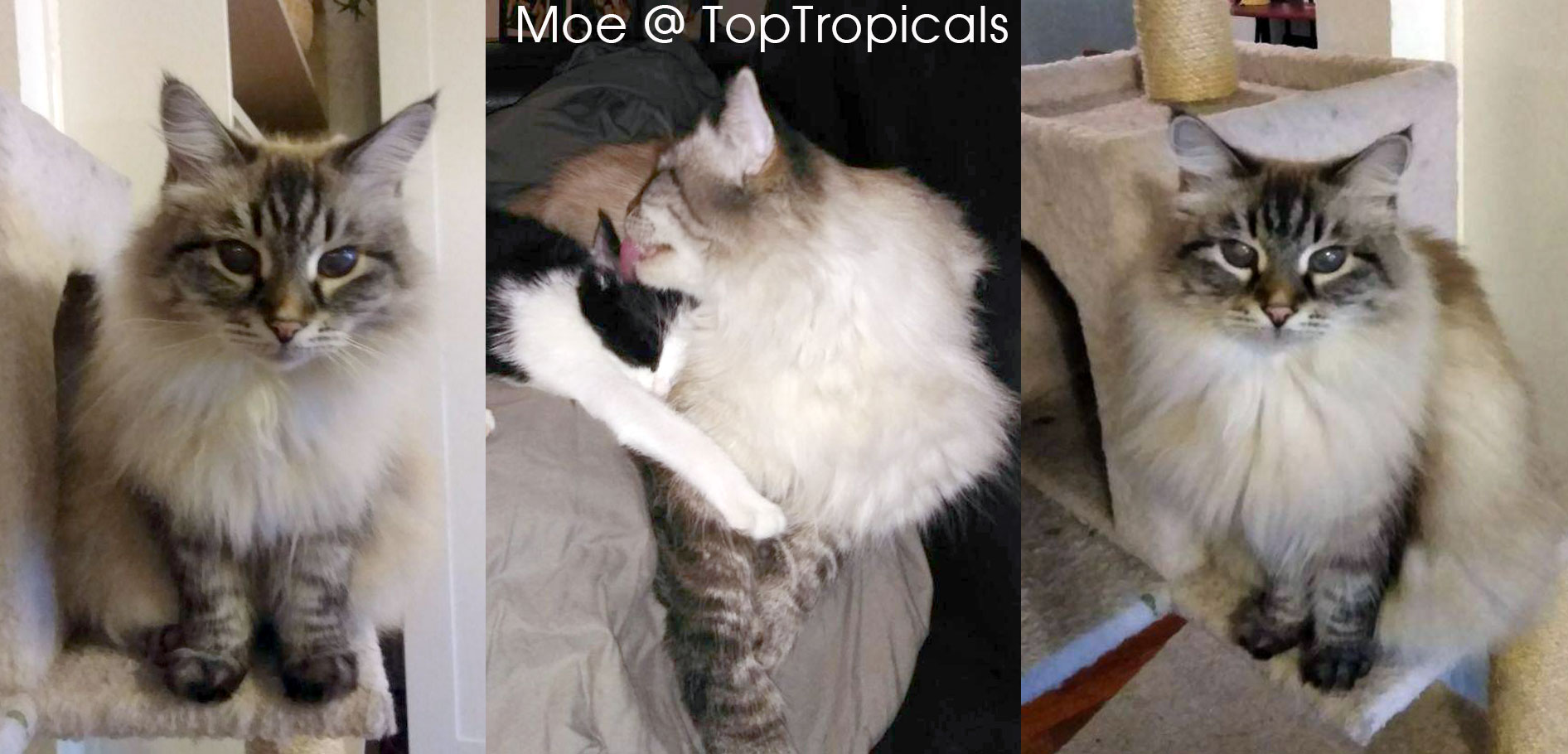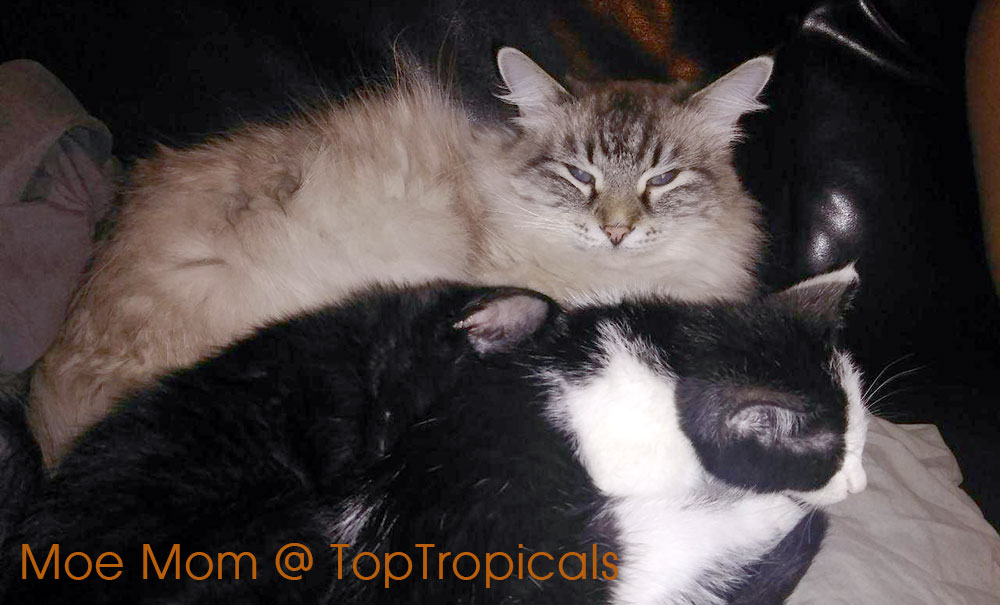Garden Blog - Top Tropicals
Date:
The Florida Native Banyan
by Mark Hooten, the Garden Doc
...The most impressive plant-life for me was a single native tree growing near a parking area along the Bay. It was the largest, oldest, "Shortleaf fig" I have ever seen. It was growing on a mass of bare exposed karst limestone and bore a small plaque describing it as being the largest Ficus citrifolia in the National Park. As it was dropping some of its little fruits at the time, I ended up taking a couple home for cultivation...
CONTINUE READING >>
Date:
Meet PeopleCats of TopTropicals. Anna Banana's Kiki and Bandit
Everyone knows and loves our Anna Banana - the Heart of Top Tropicals
Customer Service. Today she found herself another exciting project... to build
a Cat Play Room! She sacrificed her whole living room and the whole paycheck
for that.
The girl kitty with a black face is Kiki Tails. She is a bobtail.
Bandit is a black and white boy with a white tip on a black tail. Anna Banana got
them when they were just 7 weeks old. Kiki and Bandit were born on August 26,
2019, in Buckingham, just down the street from Top Tropicals Nursery!
Call Anna Banana's direct line 239-771-8081 to say hi to Kiki and Bandit! We will follow up on these babies and soon will update you with their new stories. Stay with us!
Now, here is Anna Banana's million-dollar question to her favorite customers: how do Cats and Plants go together in your garden or indoor plant collection? Tell us how your cats help you to grow plants, with pictures! The Winner will receive a FREE plant of $50 value! Participating stories and photos will be featured on Top Tropicals Facebook page.
Please use our contact form to submit your stories with pictures, with a subject "Cats in the Garden Contest"
Check out and more Cat of the Day stories.
Date:
Flavor of Feijoa Superfood
by Onika Amell, tropical plant specialist
Q: What exactly is Feijoa - Pineapple Guava? Does the fruit really taste like pineapple? I am curious to know if it is easy to grow.
A: Feijoa is certainly one of the easiest fruit trees to grow as it does
not require much care. It is an attractive, evergreen tree or large shrub with
dark green, oval, leathery leaves. It has an abundance of uses in the garden
and produces lovely edible flowers and fruit! The fruit is eaten fresh,
added to smoothies or fruit salad and is also commonly used to make delicious
jams and wicked chutneys. Feijoa fruit go a long way in flavor.
This plant is drought tolerant and will grow in almost any soil type. It
loves full sun or partial shade and is wind resistant. A lot of gardeners like
to grow it as a wind barrier for this reason. It can easily be shaped into a
dense, informal hedge or screen that needs very little pruning. Because of
this density, it provides excellent shelter for all kinds of wildlife.
Butterflies, birds, and butterflies will all love you for growing Feijoa!
Space the plant five feet apart to create a wind barrier hedge. Heat does
no not bother it at all and it will also withstand temperatures to 10 degrees
F.
The plant gets its names from the delicious perfume it emits. Some folks
seem the fruit taste like pineapple, with a slight minty undertone. Others feel
the flavor reminds them of juicy fruit gum! The texture is described as
smooth and slightly gritty - almost like a pear, but firmer.
If you prefer to grow this plant as a tree rather than a large shrub,
simply remove the lower branches up to one-third of the tree's height over a
period of time. The Pineapple Guava can grow up to 15 feet wide and tall. They
also do really well as a container plant on patios where you can truly enjoy the
lovely fragrance of the fruit. It prefers rich, organic, well-drained soil
and will need light fertilization every other month in most soils.
We recommend:
Fruit Festival Plant Food - Super Crop Booster
Mango-Food - Smart Release Fruit Tree Booster
SUNSHINE-Honey - Sugar booster
SUNSHINE C-Cibus - Crop Nutrition Booster
Pretty, pink, edible flowers will wow you from May to June, followed in late summer or fall by the delicious and fragrant fruit. An interesting thing about this fruit is that you don't pick it. It falls to the ground when it is ripe. Or simply place something under your tree, like a tarp, and shake the tree. The ripe fruit will fall off. You can store the fruit in your refrigerator for up to a week. And remember! The fruit of the Feijoa is not only a very rich source of soluble dietary fiber, but also an excellent source of Vitamin C, and very rich in antioxidants. They are also low in calories. Each fruit only holds 55 calories.
Date:
Why cats???
- Ernest Hemingway -
Q: I learn a lot from your emails and it is one of the few subscriptions that I actually (usually) open and read. I don't mean to be negative but I'm not really a fan of the cat content that you now feature above the plant content. I'm surprised that you dedicate so much space to material that really is off-topic... I'm glad you guys are in business and you educate as much (or more) than you sell. I actually drove to your location to buy stuff a few years ago and most of what I bought is still alive. My neighbor also bought a cocoa plant from you and it is thriving!
A: Thank you for your comments and orders with us. We really appreciate your interest in our newsletter.
As far as cats, we added regular Cat of The Day section because it became so popular and many customers asked for it ;) While we all know that the World is made of 2 halves - CatPeople and DogPeople, most PlantPeople are PetPeople and they find this combination fun and garden-productive!
Besides, TopTropicals Garden Center is a cat-friendly Plant facility, so the cats are part of our business, as a matter
of fact... Not only do they help us with our daily hard work, they also give us so much love, and helps us to become better people. Our employees take care of them; the cat care is on their daily task list!
Do not worry, our plant content always comes first, and more interesting
stuff coming every week! Thank you for staying with us.
Check out and more Cat of the Day stories.
Date:
Manifestation of the Ghost Trees
by Mark Hooten, the Garden Doc
...What makes these rare beauties so wonderful is not only the very nice white Hydrangea-like flowers on the ends of the branches, but also the slowly unfolding new leaves. A number of times a year, they develop little bracts on the ends of their branches which then erupt into stunning cascades of long, weeping ivory-pink new leaves. Most notably, in the more horizontal light of morning or evening, against the deep bottle-green of older leaves, these new hanging growths create the impression of being nearly incarnate apparitions floating in mid-air. I am sure this is the reason for its scientific name Maniltoa, deriving from the New Guinea name for the tree, Manilto - which means "ghost" or "manifestation"...
CONTINUE READING >>
Date:
Meet PeopleCats of TopTropicals. Charlie, the Indoor Hunter
Carlie was a kitty drop off with LadyBug, Rickie, and Purry.
Charlie is Jamie's baby. She has an attitude of a teenager, one minute she
loves you and the next - wants nothing to do with you. Carlie stays with the
inside PeopleCats, she says it's too big in the outside world for her and she
gets scared. Carlie has a fun game (fun to her): she plays around 2:00 am in
the morning, she loves to drag random items down the hall (socks, toys,
shirts, even blankets) in her mouth MEOOOWWWING as loud as she can. She then sets
the items down on her human's bedroom rug and waits for her human to say
thank you. We're pretty sure her hunting instinct is off...
Check out and more Cat of the Day stories.
2019, from Top to Bottom: Moe, Charlie, Bagheera, and Snitch. 2016: Charlie
Date:
When to apply super boost?
Sunshine Boosters: a breakthrough in Winter fertilizing
In the photo: plants are tough survivors. Life can't be stopped even by a brick road!
Q: Just wanted to know best time of day to apply super boost as spray and watering? Only listed to make sure night temp doesn't drop below 65F...
A: As a rule of thumb, plant's needs in fertilizers are very low
in the cold season because they consume less nutrients during dormancy. For
tropical plants, when minimum temperatures drop below 65F - we stop
applications of dry (granulated) fertilizers until spring, to avoid root burn.
Liquid Sunshine Boosters are exceptions from this rule to a certain extent,
for 2 reasons:
- they are amino-acid based which means, salts do not build up in the soil,
and thus will not burn the roots even with slower plant metabolism.
- concentrations/formulas are mild and designed for as frequent as daily
watering
1) When a plant goes into full dormancy (drops leaves and does not show any new growth), you may stop fertilizing with any Macro NPK products (both dry and liquid)
2) If a plant is evergreen and continues growing during the cooler
period, and especially if it is a winter bloomer, mild liquid fertilizers can be
applied, depending on the stage of plant development.
Robusta and TotalFeed are used for vegetative growth and pre-flower.
Megaflor and C-Cibus are used for winter flowering/ fruiting plants during the bloom
stage.
See full list of liquid boosters
3) Micro-elements can be used all year round for all plants that are not dormant (do not drop leaves)
4) Always use Sunshine-Epi as a foliar spray to activate immune system and unlock protective mechanisms, BEFORE applying other boosters. It is especially important during Fall-Winter for improving cold tolerance and disease resistance.
5) Always apply foliar spray and/or drench the soil with solutions in morning hours so the plant has time to process the nutrients during daylight when metabolism is the most active.
6) Avoid any dry fertilizers during winter
Date:
Meet PeopleCats of TopTropicals. Gordon Freeman: the Veteran, son of the Veteran
Gordon Freeman is one of the oldest cats, a True Veteran, and a Son of the Veteran. He was born at our old location back in Punta Gorda on November 11, 2008, when our son Alex just came back from Iraq, where he was on a military mission. So Gordon adopted him! Along with Alex, Gordon Freeman is taking care of our Country security, and is an active supporter of our Troops. This Veterans Day, his daddy Alex is again on a mission overseas, protecting our Freedom. Gordon Freeman is waiting for him to come back soon.
Our prayers are with our Soldiers. Stay safe and sound, and get back home soon!
Happy Birthday, Gordon! Happy Veterans Day!
Check out and more Cat of the Day stories.
Gordon 2008
Gordon today
Date:
Saving Fallen Papaya Tree
Q: Hope there is help for my beautiful amazing papaya tree! There where a loooooooot of fruits on it, but it broke! First of all, it was leaning and friends tried to straight my beautiful tree. What can I do? Will it get fruits again?
A: A couple months ago we also had a Papaya tree loaded with
fruit that fell down (see photos). It was heart-breaking. We secured it and it
continued growing for a couple of weeks but unfortunately, at the end the tree
still died, leaving us a million fruit.
The Papaya tree has a very sensitive root system and is hard to
re-establish once the roots are damaged.
However, if it just has a broken top, it has a good chance to grow back
from the side shoots.
Of course, remove all the fruit so they don't take energy from the
recovering tree.
When a tree is loaded with fruit, it is important to provide support for
heavy branches and for the trunk if needed. Always support the fruiting tree to
prevent from possible falling BEFORE it starts leaning down and may become
broken by even a light wind.
In the photo, you can see how we fixed boards around, but it was already
after the tree fell. Unfortunately, it was too late since the roots got
damaged. Always need to stake the tree up before the branches get too heavy!
RECOMMENDED FERTILIZERS:
Fruit Festival Plant Food - Super Crop Booster
Mango-Food - Smart Release Fruit Tree Booster
SUNSHINE-Honey - sugar booster
Only local pick up from our
Garden Center
Hurry up, while supply lasts!
Date:
Meet PeopleCats of TopTropicals. Mommy Moe, meep-meep!
Moe is the oldest of the indoor PeopleCats. She came to us six years
ago. She is a Siberian, these are sold as hypoallergenic cats... Unfortunately
for Moe's previous owner, she is not hypoallergenic! Lucky for us she is a
purrrrfect fit.
Moe is the mommy cat to all others. She takes all new People under her wing
and shows them around. She is a very sweet purrrson, and very smart. She
loves turning lights off on you and playing fetch with her toy mouse. Siberian
cats have a very unique meow. It is actually more of a "meep-meep", there is
no eowww part!
Check out and more Cat of the Day stories.
Keeping us clean and happy!
Moe raising Bagheera and Mowgli
